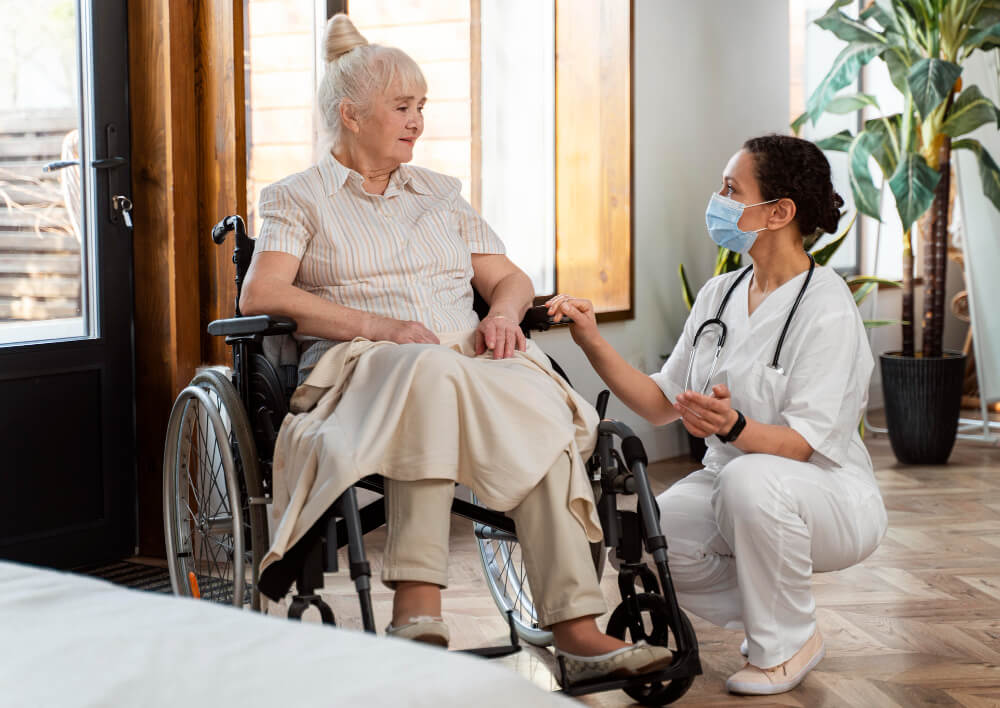Caregiving is often seen through the lens of practical tasks and medical duties, but its true essence lies in the emotional connections formed through daily interactions. At the core of exceptional caregiving is empathy—the ability to deeply understand and share the feelings of others. While it may seem like a simple concept, empathy can profoundly transform the caregiving experience.
Read on to uncover how small, empathetic gestures can create a world of difference for both caregivers and those they care for, making each day a little brighter and more meaningful.
What is empathy in caregiving?
Empathy in caregiving involves more than just recognizing a person’s needs; it’s about genuinely feeling their emotions and responding with kindness and understanding. It means putting yourself in their shoes and approaching every interaction with compassion. Empathy builds trust and creates a supportive environment where care recipients feel valued and understood.
Small gestures have big impacts.
1. Active listening
Listening with full attention can make a world of difference. When you truly listen, you show that you care about the person’s feelings and experiences. Simple actions like maintaining eye contact, nodding, and responding thoughtfully can convey that their thoughts and emotions matter.
2. Personalised comfort
Offering comfort in a way that resonates personally with the care recipient shows empathy. Whether it’s their favorite blanket, a cherished photo, or a special meal, small acts that acknowledge their preferences can enhance their sense of well-being.
3. Gentle reassurance
Many individuals receiving care may feel anxious or uncertain. Gentle words of reassurance and encouragement can help them feel more secure and supported. A comforting touch, a kind word, or a reassuring smile can go a long way in alleviating fears and boosting morale.
4. Celebrating small wins
Recognising and celebrating even the smallest achievements can be incredibly uplifting. Whether it’s a personal milestone or a daily accomplishment, showing genuine excitement and pride in their progress reinforces their sense of self-worth and motivation.
5. Respectful Communication
Empathetic communication involves not only speaking kindly but also respecting the person’s autonomy and choices. Asking for their input, respecting their decisions, and honoring their preferences are powerful ways to demonstrate empathy and respect.
The impact of empathy extends beyond the immediate caregiving situation. When caregivers approach their roles with empathy, it creates a positive ripple effect that can enhance the overall quality of care. Care recipients are more likely to feel valued, respected, and emotionally supported, which can improve their mental and physical health. Empathy also helps caregivers build stronger, more trusting relationships with those they care for. This trust can lead to better cooperation, improved communication, and a more fulfilling caregiving experience for both parties.
Building empathy in caregiving
Cultivating empathy starts with self-awareness and reflection. Taking the time to understand your own emotions and responses can enhance your ability to connect with others on a deeper level. Additionally, practicing mindfulness and emotional intelligence can help you better recognise and respond to the feelings of those you care for. Empathy is a skill that grows with practice. By incorporating small, empathetic gestures into your caregiving routine, you can create a more supportive and compassionate environment that makes a meaningful difference in the lives of those you care for.In the end, small acts of kindness and understanding can transform caregiving into a deeply rewarding and impactful experience. Embracing empathy enriches care recipients’ lives and fosters a greater sense of fulfillment and connection for caregivers. So, take a moment today to connect with empathy and witness the profound impact it can make.



Leave a Reply